
But it may have happened earlier, and it didn’t happen overnight. The pact for peace demanded skillful negotiations among distinct nations. And all the member nations had to agree to details for the confederacy’s structure and its Great Law of Peace. It took many years to achieve.
The Haudenosaunee people commemorate those achievements with their Peacemaker story. The epic tells how the Mohawk, Oneida, Onondaga, Cayuga, and Seneca nations joined together for righteousness, justice, and health.
The story begins with a wise man, or prophet, called the Peacemaker. It was during a time of conflict and violence. He hated to see the nations at war with one another. No matter who “won,” all sides suffered losses.
War also created a constant search for revenge. The Peacemaker hoped the nations would instead solve their problems through the power of reason.
هذه القصة مأخوذة من طبعة November/December 2019 من Cobblestone American History Magazine for Kids.
ابدأ النسخة التجريبية المجانية من Magzter GOLD لمدة 7 أيام للوصول إلى آلاف القصص المتميزة المنسقة وأكثر من 9,000 مجلة وصحيفة.
بالفعل مشترك ? تسجيل الدخول
هذه القصة مأخوذة من طبعة November/December 2019 من Cobblestone American History Magazine for Kids.
ابدأ النسخة التجريبية المجانية من Magzter GOLD لمدة 7 أيام للوصول إلى آلاف القصص المتميزة المنسقة وأكثر من 9,000 مجلة وصحيفة.
بالفعل مشترك? تسجيل الدخول
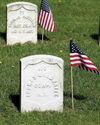
Putting the Pieces Together
Americans needed to begin to put the past behind them, come together, and plan for the future in the spring of 1865. But Abraham Lincoln, the man best equipped to lead them and who had hoped to restore the country as smoothly and peacefully as possible, had been assassinated.
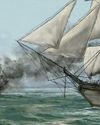
LAST SHOTS
The last Confederate forces in the Civil War didn’t surrender in the spring of 1865 or on a battlefield.
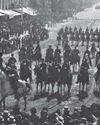
AND IN OTHER 1865 NEWS
A group of African Americans stop at the White House’s annual public reception on January 1, where they shake hands with President Abraham Lincoln.
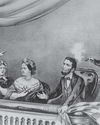
A Plot to Kill President the
For several months, actor John Wilkes Booth’s band of conspirators had plotted to capture President Abraham Lincoln and hold him hostage in exchange for Confederate prisoners.
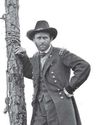
Let the Thing Be Pressed
In June 1864, Union Lieutenant General Ulysses S. Grant began a nearly 10-month campaign in Virginia.
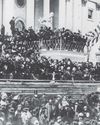
HEALING THE NATION
President Abraham Lincoln took the oath of office for the second time on March 4, 1865.
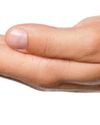
A Helping Hand
The spring season is hard in any agricultural society. Plants and animals are too small to eat.
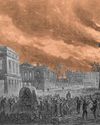
WAR SHERMAN-STYLE
As far as Union Major General William T. Sherman was concerned, the Civil War had gone on long enough.
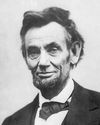
PEACE TALKS
The fall of Fort Fisher made clear that the Confederacy’s days were numbered. Southerners were tired and hungry.
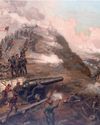
FORT FISHER'S FALL
Outnumbered Confederate soldiers inside Fort Fisher were unable to withstand the approach of Union troops by land and the constant Union naval bombardment from the sea.